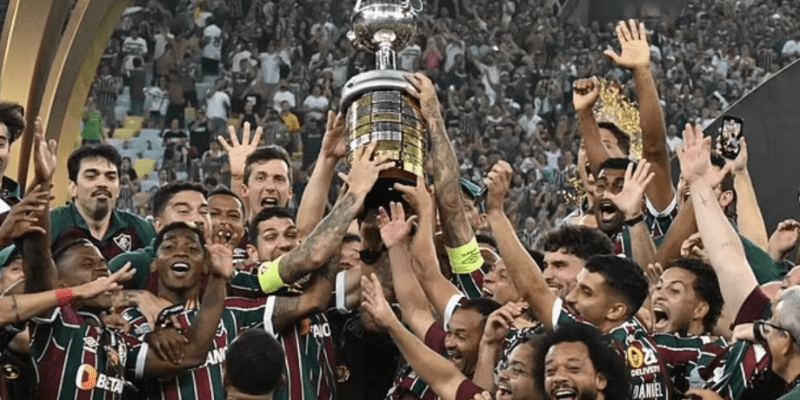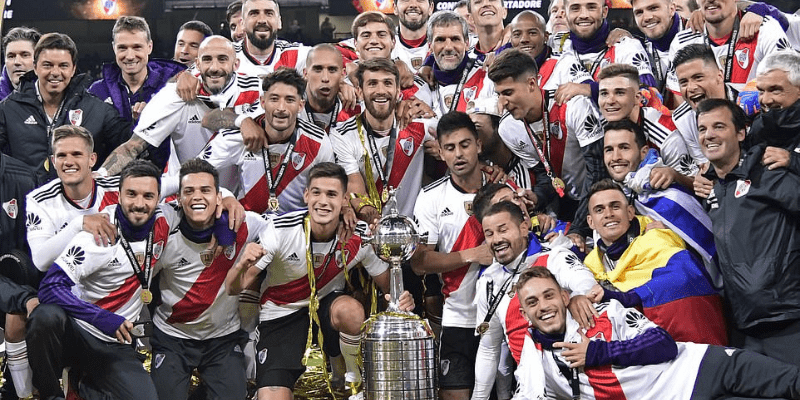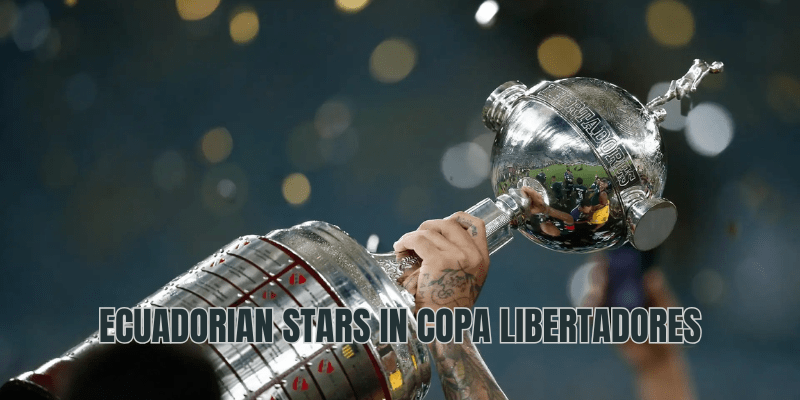Ecuadorian stars in Copa Libertadores have, over decades, etched their name into the continent’s most prestigious club competition. Though Ecuadorian clubs have traditionally played the role of underdog, individual talents made history — some rewriting records, others igniting hope for a nation dreaming big. In this article, CantoKick will guide you through the greatest Ecuadorian protagonists in the Copa Libertadores saga: their stories, stats, and the legacy they left for future generations.
A Legendary Name: Alberto Spencer, The Ultimate Ecuadorian Icon

No article on Ecuadorian stars in Copa Libertadores can start without the name Alberto Pedro Spencer Herrera. Born in Ancón, Ecuador, Spencer is not only the country’s most revered football legend — he remains the all-time leading scorer in Copa Libertadores history with 54 goals.
Spencer’s path in Libertadores began early. Over eleven editions of the tournament (roughly between 1960 and 1972), he found the net in nearly every campaign, except in two (1964 and 1965). He amassed those 54 goals playing for Peñarol (Uruguay) and later, during his return to Ecuador, with Barcelona SC.
His achievements go beyond frequent scoring:
- He lifted three Copa Libertadores titles (1960, 1961, 1966) with Peñarol.
- He also won two Intercontinental Cups, defeating the best of Europe.
- He twice secured the Libertadores top scorer award.
- His nickname, “Cabeza Mágica” (Magic Head), reflects his prowess in aerial play and instinctive finishing.
Even decades after his retirement, Spencer’s mark remains unbroken. He is the benchmark every striker in South America studies — a towering figure in continental football history.
Ecuadorian Players Who Touched Libertadores Glory (or Came Close)

While Spencer towers over all, there are Ecuadorian stars who played pivotal roles in Libertadores campaigns, especially when Ecuadorian clubs made deep runs.
Patricio Urrutia – Midfield Heart of the Only Ecuadorian Title
When LDU Quito became the first and only Ecuadorian club to win the Copa Libertadores (in 2008), Patricio Urrutia was the heartbeat of that historic squad.
A central midfielder with grit, composure, and leadership, Urrutia helped control tight eliminations and kept LDU balanced. He was later named Player of the Finals in that campaign. His importance is etched in Ecuador’s football memory — his name always evoked when fans look back on that miracle campaign.
Other Contributors to the 2008 Triumph
That LDU squad had several Ecuadorian faces who played supporting but essential roles:
- Israel Chango, budding midfielder, was part of the squad and contributed during the campaign.
- Byron Camacho also belonged to that team, bringing depth to the midfield ranks.
- Gabriel Espinosa was another name allied with LDU’s Libertadores journey.
Though not headline stars, their presence anchored squad cohesion — doing the unsung work that champions often require.
Young Fire: Kendry Páez and New Ecuadorian Aspirations

In recent years, the narrative of Ecuadorian impact in Libertadores has taken a youth-driven turn — led by Kendry Páez. A prodigy, Páez has already created milestones:
- He became the youngest Ecuadorian to score in Libertadores, netting his first goal at 16 years and 357 days.
- He also holds the record as the youngest Ecuadorian to debut in a Copa Libertadores match, doing so at just 15 years.
- However, due to administrative and tactical reasons, Páez did not take part in several 2025 Libertadores matchdays for his club Independiente del Valle. avisa.com])
Though his continental minutes remain limited, Páez is a beacon of the new generation — one that believes Ecuadorians can shine again on South America’s grand stage.
Clubs, Campaigns, and Ecuadorian Performances in Libertadores
Beyond individual names, Ecuadorian clubs have carved a slow but steady path in Libertadores; quite often powered by local stars.
Club Ecuador: The Evolution of Ecuadorian Teams in the Tournament
Ecuador’s first entry into Copa Libertadores was marked by Barcelona SC in 1961. In the early years, Ecuadorian teams largely struggled; competition was stiff and resources limited.
But by the 2000s and 2010s, teams like LDU Quito, Barcelona SC, Emelec, and Independiente del Valle began making meaningful strides — quarterfinals, semifinals, finals. ls. LDU’s 2008 triumph was the pinnacle — no other Ecuadorian club has yet replicated it.
Independiente del Valle’s run to the final in 2016 stands out as another remarkable moment. Though they lost the final, the club showed that Ecuadorian teams could compete toe-to-toe with continental giants.
Ecuadorian Stars Amplifying Club Success
When Ecuadorian clubs go deep into Libertadores, local stars often carry weight:
- In LDU’s 2008 campaign, local midfielders and homegrown defenders ensured team stability against big-budget opponents.
- Clubs like Independiente del Valle have leaned on young domestic talents like Páez, as well as exports, to punch above their weight.
- While foreign imports often attract the headlines, it is the homegrown Ecuadorian core that often sustains consistency in tough knockout matches.
Thus, Ecuadorian stars in Copa Libertadores are more than goal scorers — they are decorators of culture, spirit providers, guardians against pressure, and sometimes, match architects.
Why Ecuadorian Stars Matter in Libertadores Narrative
- Symbol of national pride: Despite financial disparities, Ecuadorian players prove the nation belongs in South America’s elite football narrative.
- Bridge between eras: Spencer’s legacy connects to modern talents like Páez — forming an unbroken thread of ambition and excellence.
- Catalysts for club success: When an Ecuadorian player steps up in a knockout match, it often inspires those around him and shifts momentum.
- Talent export showcase: Their Libertadores performances often open doors abroad — scouts closely watch how Ecuadorian stars fare against continental powerhouses.
For many fans, watching an Ecuadorian shine in the Libertadores feels like watching the nation step onto the continent’s main stage — and for players, it offers a platform to transcend national boundaries.
Final Thoughts
Ecuadorian stars in Copa Libertadores tell a story of brilliance, persistence, and evolving ambition. Alberto Spencer remains the undying legend — the standard by which all Ecuadorian forwards are measured. Patricio Urrutia and his LDU compatriots carried a nation’s dream, winning the only Ecuadorian Libertadores. And the rising flame of Kendry Páez signals that future chapters are already being written.
If you love seeing Ecuadorian talent light up South America, stay tuned here at CantoKick. Follow us for dee



